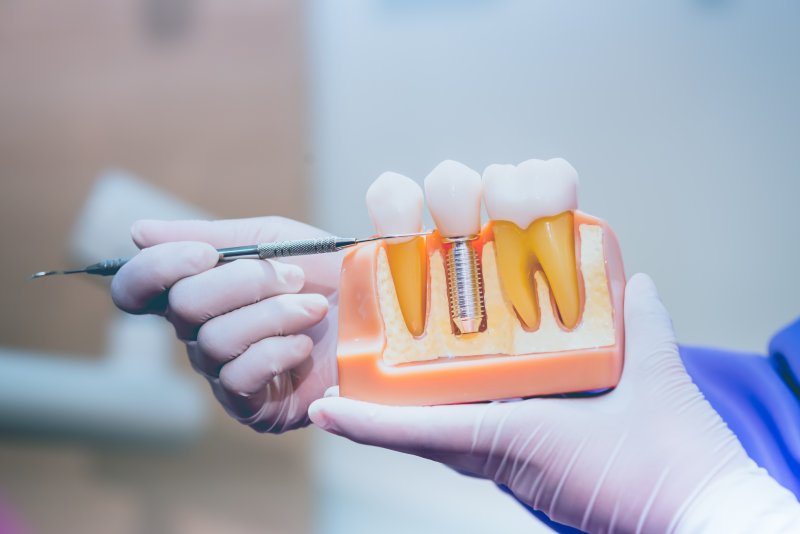
If you’ve had a dental implant, you know how fantastic it is as a tooth replacement treatment. The titanium rod connected to your jawbone makes a great and sturdy foundation for placing a long-lasting dental crown. But doesn’t metal usually rust?
If you’ve ever been curious about the risk of corrosion present with dental implants, continue reading. You’ll learn about rust, corrosion, and how they impact dental implants.
How Do Metals Rust?
Rust is a chemical reaction between iron and oxygen. This reaction causes a new chemical called ferrous oxide (rust) to appear. Any metal that contains iron is a ferrous material, so it is vulnerable to corrosion and rust. Other metals can also corrode, but it’s not the same thing.
Can Dental Implants be Affected by Corrosion?
Dental implants are usually made from titanium, which is a non-ferrous metal. This means that it won’t rust in the way you’re thinking. Instead, it can be subject to one of two different kinds of weathering:
Galvanic Corrosion
Galvanic corrosion occurs when your saliva conducts a current between your implant and any other metal that may be in your mouth. This could be an amalgam filling, a gold crown, or some other restoration that utilizes metal. These tiny electric pulses can create wear on the implant, causing a decreased lifespan.
Stress and Pit Corrosion
Stress and pit corrosion is more mechanical than chemical. This type of wear happens when two implants continually come into contact with each other. This can happen due to close proximity or improper placement. As the two implants rub against one another, it can cause microscopic pits to develop in the metal, causing small fractures over time.
So, yes, dental implants can corrode. However, it only appears in a very small number of dental implant cases. The more likely culprit of implant failure is poor oral hygiene, so ensure that you’re brushing and flossing regularly to keep your implant healthy.
If you suspect your implants may be experiencing wear, contact your dentist for an examination. Early detection can prevent your dental implant from getting worse and lowers the likelihood of failure.
About the Author
Dr. Mohammad Golparvar is a passionate and experienced dentist who enjoys the complexity of his work and the relationships he builds with his patients. He earned his dental doctorate at the Boston University School of Dental Medicine and graduated with a Certificate of Advanced Graduate Study for his additional work on dental implants. To schedule a dental implant consultation at Webster Dental Associates of Manchester, call (603) 669-4252 or visit the website to learn more.
